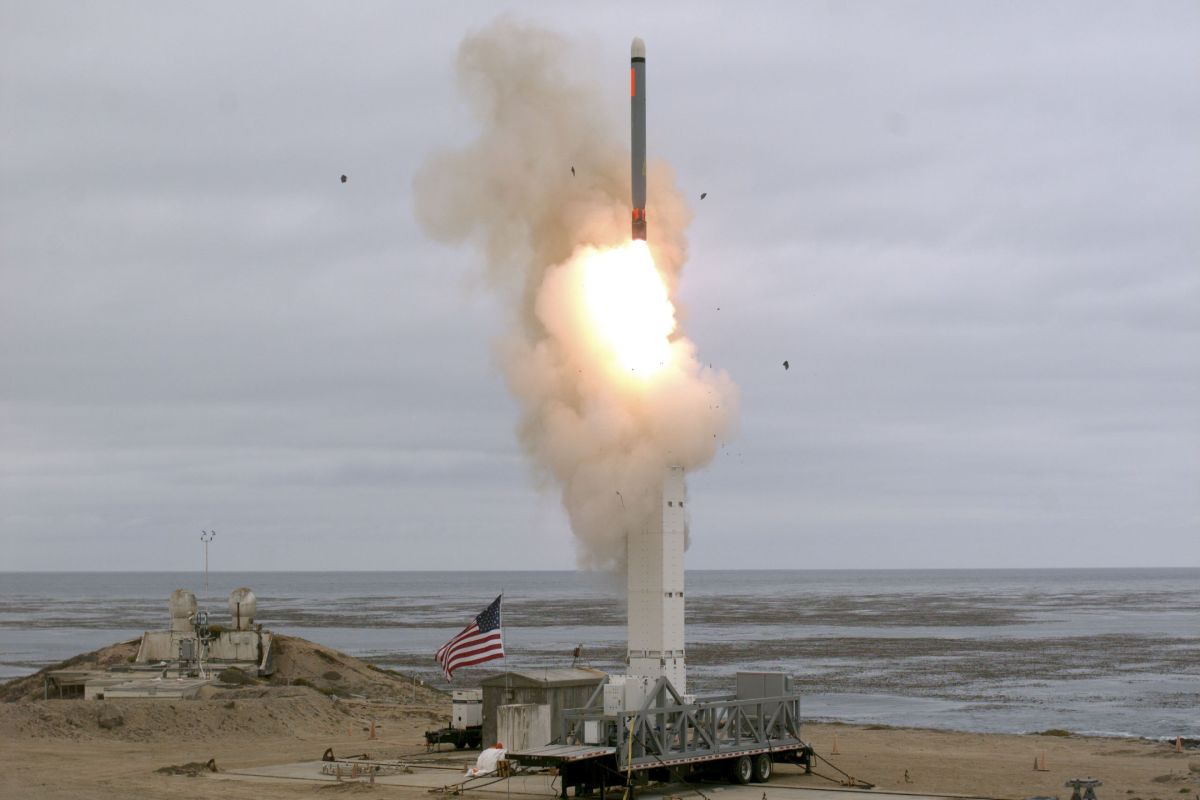Monday’s missile test by the United States of America ~ ever so averse to not dissimilar adventurism by North Korea ~ is bound to raise fears of a revival of the arms race. Such grave misgivings had already been expressed by China and Russia not the least because the test, conducted somewhere off the beach in California, comes weeks after Washington withdrew from a Cold-war era missile control treaty that would have barred the test launch.
Ergo, the development was not wholly unexpected after the collapse of the nuclear arms treaty in the first week of August. With the testfiring, the 1987 treaty lapses in the limbo of international relations, most particularly because the weapon tested by the US was a version of the nuclear-capable Tomahawk cruise missile. In the immediate aftermath of the test, China has urged the US to ‘let go of the Cold War mentality’.
The trilateral tension between the US, China and Russia will almost certainly escalate as it has over a welter of other issues. The Cold War has ended in terms of periodisation of history; one of the players ~ yesterday’s Soviet Union is today’s Russia ~ now even has a finger in America’s electoral pie. For all the simulated bonhomie, the one-time warriors will now be expected to behave rationally. Trumpian America may have demonstrated that it will not.
As much was palpable from the plume of dense smoke that emanated from the launch pad in the sea. The Tomahawk cruise missile hit its target after over 500 kilometres of flight, the Pentagon said in a statement. Ground-launched versions of the missile had been removed from service in 1987 after the Intermediate- range Nuclear Forces (INF) treaty was signed by Ronald Reagan and Mikhail Gorbachov.
Both were more responsible than either Donald Trump or Vladimir Putin. The treaty’s ban on missiles with ranges between 500 km and 5,500 km had aimed to reduce the ability of both countries to launch a nuclear strike at short notice. The test-firing has caused a flutter in the roost of both China and Russia. Somewhat reassuring is the response of the Kremlin ~ “Moscow is not looking to start a new arms race, and will not deploy any new missiles unless the US did it first,” was the assurance of the Russian Deputy Foreign Minister Sergei Ryabkov.
His message must resonate in the echo chambers of the Pentagon ~ “All this elicits regret. The United States has obviously taken the course of escalating military tensions. We will not succumb to provocations. We won’t allow ourselves to be pulled into a costly arms race.” More virulent has been the response from Beijing; it has attacked the US for provocative behaviour, warning that the missile test could lead to “another round of the arms race”, and have a “serious negative impact” on international and regional security. The Trumpian praxis of defence and diplomatic engagement has generated a measure of shock and awe across the seas. Arguably and almost instinctively, it might bolster the likes of Kim Jong-un.











